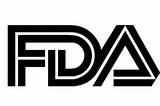Our best-selling US GCP course has a chapter devoted to draft FDA guidance. There have been several changes since we last updated it in 2013 so it is time to bring it bang up to date.

Last year, several important FDA guidances were still in draft form and they are now in full effect. The guidance on electronic source data, instances when an IND would not be required, and the physician payment sunshine act are all now in force – although the guidance on exculpatory language is still in draft form.
Replacing these is another crop of draft rules, all of which have a potential impact on US trials…
Switching IRBs…
One draft guidance document discusses the responsibilities of IRBs, clinical investigators, and sponsors when oversight of a previously approved investigation is transferred from one IRB to another. It also addresses questions that have been previously raised concerning procedures and processes that are required and/or recommended by FDA when such a switch occurs.
Enrichment strategies…
The FDA has also provided guidance to industry on enrichment strategies that can be used in trials intended to support effectiveness and safety claims in new drug applications and biologics license applications. Similar strategies may also be useful in studies conducted in earlier stages of development.
The FDA defines "enrichment" as “the prospective use of any patient characteristic to select a study population in which detection of a drug effect (if one is present) is more likely than it would be in an unselected population.” Genomic and proteomic markers, typically used in companion diagnostics and personalized medicine, are two of the several suggested patient characteristics for selecting an enriched study population.
There are many reasons to use such study designs, including an enhanced benefit-risk relationship if a population with an increased likelihood of response can be identified, and efficiency in drug development, as smaller studies can often be used to demonstrate effectiveness.
Charging for investigational drugs…
The FDA has allowed sponsors to charge for an investigation drug since 1987. However, in 2009, it revised that rule for three main reasons - clinical trials had changed significantly in the previous two decades, criteria needed to be developed to allow for expanded access programs, and the types of costs that could be recovered from patients needed to be narrowed.
The new draft guidance gives a brief overview of some of the more common questions that come out of FDA's 2009 Charging Rule, including –
- Under what circumstances may a sponsor charge for its own investigational drug?
- How long does FDA take to respond to requests to charge for an investigational drug?
- Who may the sponsor charge?
- Must a company obtain approval to charge for its drug?
- How long may a sponsor charge for a drug?
- What costs are reasonable to recover when charging for access? and
- What documentation needs to be made available to support a cost calculation?
The guidance also makes it clear that, although charging for a drug could potentially break the blind in a blinded trial, it is the sponsor’s duty to find a way around this.
Electronic submission of INDs…
This is covered in two new guidance documents – Draft Guidance for Industry for Providing Regulatory Submissions in Electronic Format – Submissions Under Section 745A(a) of the Federal Food, Drug, and Cosmetic Act and Draft Guidance for Industry Providing Regulatory Submissions in Electronic Format - Standardized Study Data.
The first was produced in response to the 2013 legislative change that required various submissions, including investigational new drug applications, to be in electronic format. It describes the scope of the legislation, waivers and exemptions, and the process and timetable that the FDA will use to implement the requirements.
The second new draft guidance document describes the requirements for a valid electronic submission of standardised study data under Section 745A(a) of the FD&C Act and also applies to INDs.






